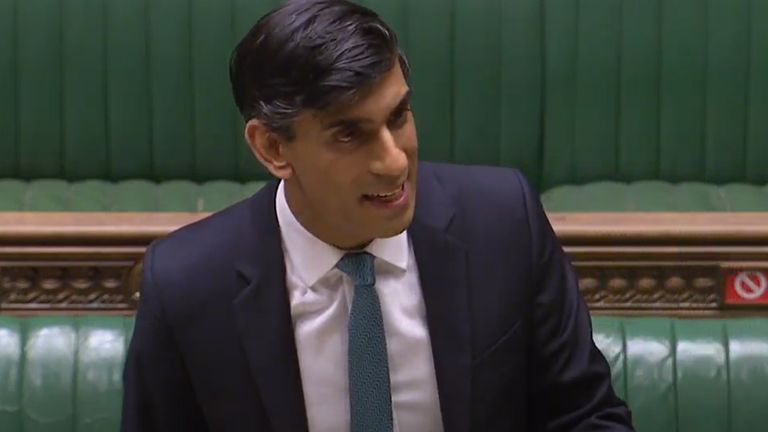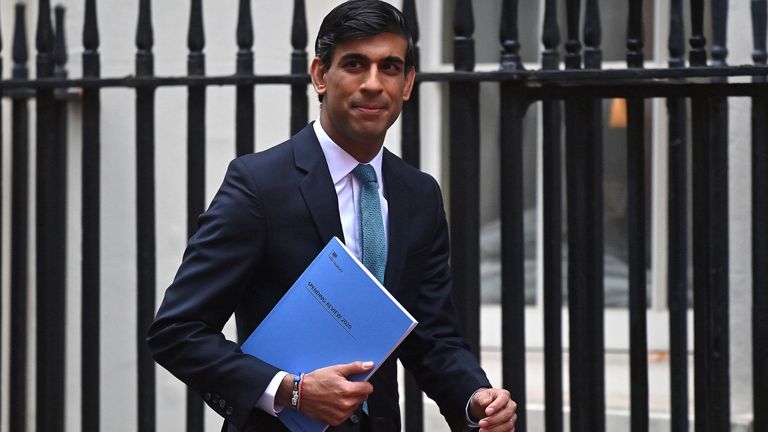Chancellor Rishi Sunak has told MPs that the UK economy is forecast to have suffered the largest fall in output for more than 300 years as a result of the coronavirus crisis.
As he set out his one-year spending review to the House of Commons, Mr Sunak declared the “economic emergency” from the pandemic “has only just begun”.
With UK borrowing forecast to reach £394bn this year – equivalent to 19% of GDP and and the highest recorded level in the country’s peacetime history – Mr Sunak announced a pay freeze for public sector workers outside of the NHS.
He also abandoned a Conservative manifesto commitment to fund the foreign aid budget at the equivalent of 0.7% of gross national income, instead cutting it to 0.5%.
Mr Sunak told MPs the Office for Budget Responsibility (OBR) expects unemployment to rise to a peak of 2.6 million people next summer.
The OBR has also forecast an 11.3% contraction in the UK economy this year, the chancellor said.
Mr Sunak added: “Even with growth returning, our economic output is not expected to return to pre-crisis levels until the fourth quarter of 2022.
“And the economic damage is likely to be lasting. Long-term scarring means, in 2025, the economy will be around 3% smaller than expected in the March budget.”
Mr Sunak said the government had this year provided £280bn to battle the COVID crisis, with an initial £18bn already earmarked for next year for spending on personal protective equipment, testing and vaccines.
The chancellor also used his spending review to announce a £4.3bn package of support to help the jobless find work.
This includes a new three-year £2.9bn scheme to help one million unemployed people in their job search – alongside £1.4bn of new funding to increase Job Centre Plus capacity.
Earlier on Wednesday, Mr Sunak and the chief secretary to the Treasury, Steve Barclay, updated the cabinet ahead of the spending review.
Cabinet ministers were warned that economic forecasts by the Office for Budget Responsibility (OBR) made for a “sobering read”.
A Number 10 spokesman said: “Cabinet was told the OBR forecasts will show the impact the coronavirus pandemic has had on our economy and they will make for a sobering read, showing the extent to which the economy has contracted and the scale of borrowing and debt levels.
“But – as the IMF (International Monetary Fund), OBR and others have pointed out – the costs would have been much higher had we not acted in the way we have done.”
The chancellor set out the government’s three priorities for the spending review as protecting people’s lives and livelihoods, investing in public services, and delivering infrastructure funding to “level up and spread opportunity” across the UK.
Wednesday’s spending review came a week ahead of England’s month-long lockdown coming to an end.
This will allow all shops across the country to open for three weeks before Christmas and – Mr Sunak will hope – provide much-needed stimulus for the economy.
The prime minister and the chancellor were due to address the 1922 Committee of Conservative MPs on Wednesday evening.


